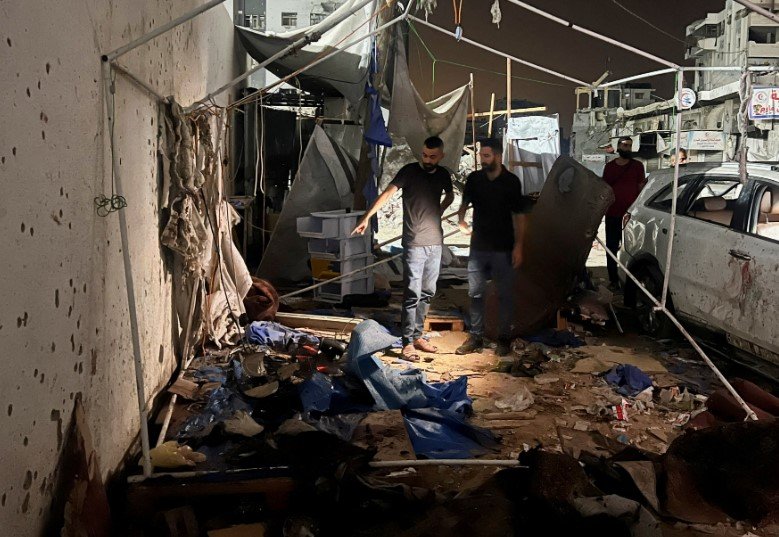Al Jazeera confirmed that one of its most recognisable correspondents in Gaza, Anas Al Sharif, was killed alongside four colleagues on Sunday after an Israeli airstrike hit a tent set up for journalists in Gaza City. The Israeli military later claimed Al Sharif was “a terrorist” affiliated with Hamas, an accusation the Qatar-based network strongly denies.
The deaths add to a growing list of journalists killed in the 22-month war, with media watchdogs counting nearly 200 fatalities among media workers since the conflict began.
A Familiar Face in Gaza’s War Coverage
At 28, Anas Al Sharif had become a fixture in Al Jazeera Arabic’s coverage from northern Gaza. Viewers across the Arab world knew him for his daily live reports from the heart of the fighting, often delivered in a flak jacket and helmet amid the dust and chaos.
Colleagues describe him as relentless, working long hours to keep coverage flowing despite the physical and emotional toll. His dispatches brought images of destroyed homes, crowded hospitals, and the grim reality of life under siege.
He was killed outside the main gate of a Gaza City hospital — a spot often used as a press gathering point because it had been seen as relatively safe.
The Strike That Shook the Media Community
The strike took place on August 10 in the afternoon, hitting a cluster of tents marked for journalists.
Five Al Jazeera staff were killed instantly:
-
Anas Al Sharif, correspondent
-
Mohammed Qreiqeh, correspondent
-
Camera operators Ibrahim Zaher, Mohammed Noufal, and Moamen Aliwa
Witnesses said the blast tore through the canvas tents without warning. Survivors described the sound as “a sharp crack, then nothing but dust and screams.”
For Gaza’s press corps — already operating in one of the most dangerous environments for journalists — the attack was another reminder that marked press areas are not immune.

Israel’s Statement and Al Jazeera’s Response
Hours after the strike, the Israeli military issued a statement confirming it had targeted Al Sharif. It called him a Hamas member who “posed as a journalist” to conceal militant activity.
Al Jazeera has rejected that claim outright, accusing Israel of deliberately targeting journalists to silence independent reporting from Gaza. The network’s Doha headquarters released a statement calling the attack “a clear violation of international humanitarian law” and demanded an independent investigation.
Rights groups, including the Committee to Protect Journalists, have also called for an inquiry, noting that labelling reporters as combatants without verifiable proof puts all journalists at risk.
A Dangerous Pattern for Media in Gaza
This is far from an isolated case. Since the conflict reignited nearly two years ago, Gaza has seen an unprecedented number of journalist fatalities.
Media advocacy organisations say the number — nearly 200 dead — is without modern precedent. Some of these deaths occurred during field reporting, others while journalists were sheltering at home.
A breakdown from Reporters Without Borders earlier this year showed:
| Category | Number of Journalists Killed |
|---|---|
| While reporting in the field | 118 |
| In their homes | 57 |
| Cause unverified | 22 |
The Gaza Press Union has warned that with shrinking safe zones, “press tents are no longer sanctuaries but targets.”
Colleagues Remember a Relentless Reporter
In Doha, Al Jazeera anchors fought back tears as they announced Al Sharif’s death live on air. His colleagues in Gaza posted photographs and short videos showing him reporting just hours before the strike.
One video circulating on social media shows him adjusting his microphone as he prepares to go live, telling a colleague off-camera, “Let’s try to tell it all, even if no one is left to hear it.”
Friends recall his commitment to staying in northern Gaza during some of the heaviest bombardments, even when others evacuated south.
The Political and Legal Fallout
Killing journalists is widely condemned under international law unless they are actively participating in hostilities. Israel’s assertion that Al Sharif was a Hamas operative will likely be a point of contention in diplomatic circles.
Qatar’s government, which funds Al Jazeera, has lodged a formal protest and is expected to raise the issue at the United Nations. Several European foreign ministries have also called for clarity, urging that journalist safety be upheld regardless of conflict conditions.
A War Where Press Badges Offer Little Protection
For Gaza’s remaining reporters, the strike sends a chilling message. Press badges, body armour, and marked tents have not shielded them from danger.
Some journalists still in the field are now choosing to work without visible “PRESS” markings, fearing they may attract attacks rather than prevent them.
Others are doubling down on documentation, arguing that recording events is more important than ever, even at extreme personal risk.
As one Gaza-based freelancer put it in a post on X: “If we stop filming, the war will continue in silence. And silence kills too.”
